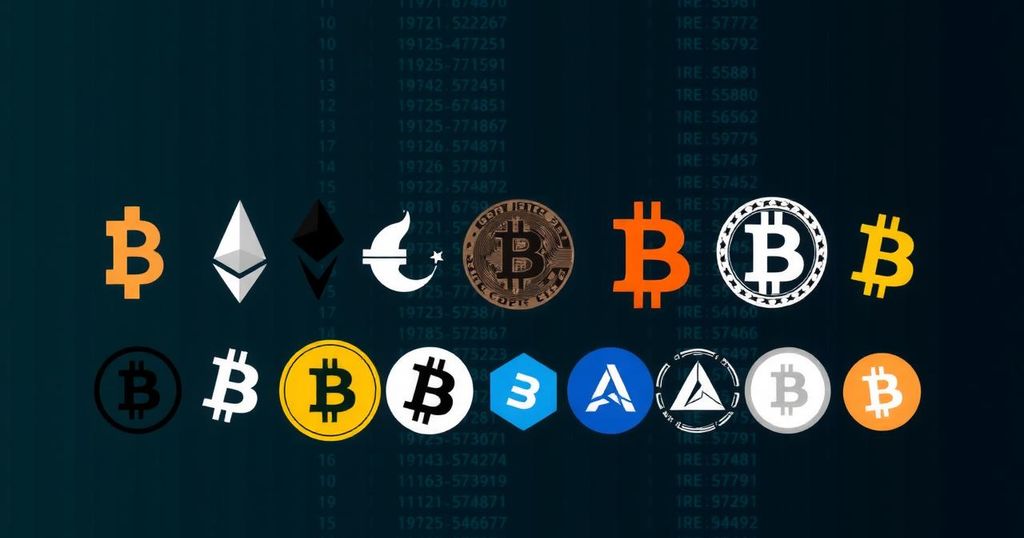An Overview of the 12 Most Popular Cryptocurrencies as of 2024
In recent years, the cryptocurrency landscape has expanded considerably, evolving beyond Bitcoin, which first emerged in 2009 and continues to dominate discussions regarding digital currencies. While many recognize Bitcoin as the leading cryptocurrency, it is critical to acknowledge the multitude of altcoins, or alternatives to Bitcoin, which have gained significant traction within the market.
As of September 6, 2024, a comprehensive review of the major cryptocurrencies based on their market capitalization reveals a diverse and dynamic array of digital currencies. Below is a list of the twelve most prominent cryptocurrencies, detailing their market prices and capitalizations:
1. Bitcoin (BTC)
– Price: $54,793
– Market Cap: $1.08 trillion
Bitcoin remains the benchmark for cryptocurrencies, largely attributed to its pioneering status and the endorsement by regulatory bodies such as the U.S. Securities and Exchange Commission (SEC), which sanctioned the trading of Bitcoin-focused Exchange-Traded Funds (ETFs) in 2024.
2. Ethereum (ETH)
– Price: $2,331.15
– Market Cap: $280 billion
Recognized for its versatile platform, Ethereum facilitates various functions through its native currency, ether, with particular emphasis on smart contracts, which underpin much of its popularity.
3. Tether (USDT)
– Price: $1.00
– Market Cap: $118 billion
Tether is categorized as a stablecoin, being pegged to the U.S. Dollar. It often serves as a transitional asset for traders moving between cryptocurrencies instead of reverting to traditional fiat currencies, although concerns regarding its reserve backing have been raised.
4. BNB (BNB)
– Price: $496.98
– Market Cap: $73 billion
Initially launched as a utility token for discounted trading on the Binance exchange, BNB has evolved in use, now encompassing diverse applications, including payments for goods and services.
5. Solana (SOL)
– Price: $128.77
– Market Cap: $60 billion
Since its launch in March 2020, Solana has distinguished itself with its rapid transaction speeds and scalability, capping its total supply at 480 million coins.
6. USD Coin (USDC)
– Price: $1.00
– Market Cap: $35 billion
Similar to Tether, this stablecoin is anchored to the U.S. Dollar and is supported by fully reserved assets upheld in regulated U.S. institutions, ensuring stability and trust.
7. XRP (XRP)
– Price: $0.5301
– Market Cap: $30 billion
Originally branded as Ripple, XRP was designed to facilitate payments across various currencies and streamline cross-border transactions through its innovative mechanisms.
8. Dogecoin (DOGE)
– Price: $0.09429
– Market Cap: $14 billion
Initially conceived as a parody of a popular meme, Dogecoin has developed a dedicated following, characterized by its unlimited supply and suitability for small transactions and tipping.
9. TRON (TRX)
– Price: $0.1486
– Market Cap: $13 billion
Launched in 2017, TRON focuses on decentralized applications, gaining prominence after acquiring the peer-to-peer network BitTorrent in 2018, which significantly extended its reach.
10. Toncoin (TON)
– Price: $4.74
– Market Cap: $12 billion
Initially created by Telegram, Toncoin saw revitalization when it was integrated into the Telegram messaging platform, spurring interest and investment in 2023.
11. Cardano (ADA)
– Price: $0.3164
– Market Cap: $11 billion
Developed by one of Ethereum’s co-founders, Cardano emphasizes a research-driven approach to blockchain technology and features smart contracts for evolving identity management solutions.
12. Avalanche (AVAX)
– Price: $21.36
– Market Cap: $9 billion
Launched in 2020, Avalanche is positioned as a strong competitor to Ethereum, specializing in smart contracts and decentralized applications.
In conclusion, the realm of cryptocurrency presents a complex and rapidly evolving landscape filled with numerous investment opportunities; however, individuals should exercise caution. It is paramount for investors to only allocate resources they can afford to lose, particularly as they navigate market dynamics influenced by sophisticated market participants. Furthermore, regulatory developments, such as the launch of new Ethereum-based ETFs in July, signify an increasing institutional acceptance and legitimacy for cryptocurrencies. Investors are strongly encouraged to engage in thorough independent research prior to making investment decisions, as historical performance does not guarantee future results.








Post Comment